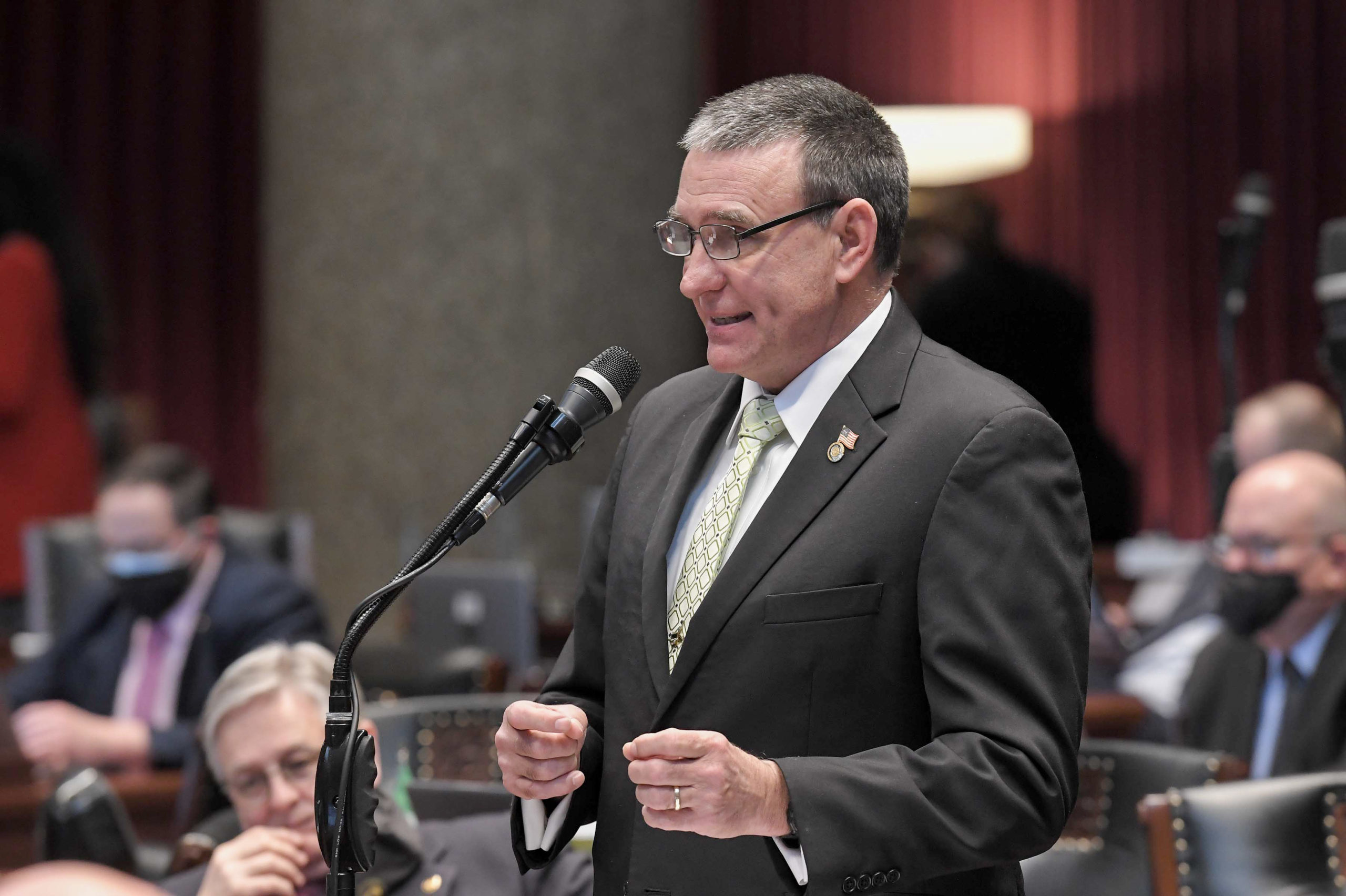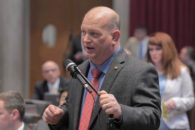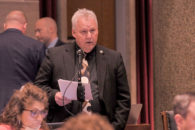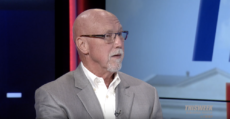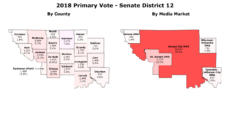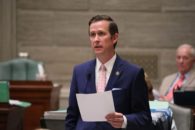As elected officials vacate Jefferson City and return to their families and jobs, The Missouri Times is taking a look at legislative priorities that may headline next year’s session. The “Next Steps” series will showcase certain legislative issues and take a look ahead at what could come next.
Missouri did not add any new eminent domain regulations to the books this year despite a push from lawmakers and state officials. With next year’s session around the corner, some Republican legislators are preparing to resume the fight in the statehouse.
Rep. Mike Haffner proposed legislation aimed at the Grain Belt Express the past two years, seeking to address constituents’ concerns over the multi-state transmission line’s use of eminent domain.
The chair of the Joint Committee on Agriculture said he intends to continue the fight next year. His proposal would require projects seeking approval for a merchant line to provide the Missouri Public Service Commission (PSC) with a resolution of support from the commission of each county it would pass through.
The bill would also restrict projects, excluding those operated by an electric cooperative or a nonprofit, from constructing above-ground transmission lines using eminent domain.
“We’re trying to protect the individual property rights of Missouri farmers, landowners, and ranchers,” Haffner, a Republican, told The Missouri Times. “Our eminent domain statute is out of date, and this private company has permission from the PSC, but only a small portion of the power goes to Missourians. This isn’t needed and it isn’t fair to force farmers to sell their land.”
Haffner sponsored the same bill this year and shepherded it out of the lower chamber with broad Republican support. Though the effort was backed by leadership in both chambers and members of the executive branch, Haffner’s bill did not make it to a hearing in the Senate as session wound to a close.
Sen. Jason Bean, who sponsored the same language in the upper chamber this session, said he intended to continue the battle as well.
“Property rights will always be a priority for me,” Bean said. “Eminent domain has a place, but not when a private company is using it for a merchant transmission line gutting our family farms that families have spent generations cultivating and feeding the world.”
Landowners haven’t been shy about making their thoughts on the project known. More than three dozen witnesses testified on both sides of the issue during a hearing in January, and several agricultural organizations have joined the push over the years.
The proposed 780-foot transmission line would deliver energy from Kansas to Missouri and other states and include broadband infrastructure for rural communities along the project line at no additional cost to taxpayers. Parent company Invenergy said the project would deliver around 4,600 megawatts of clean energy to 1.6 million homes annually while creating temporary and permanent construction work.
It would extend through eight Missouri counties: Buchanan, Clinton, Caldwell, Carroll, Chariton, Monroe, Randolph, and Ralls.
The project was approved by the PSC in 2019. Commissioners dismissed the last of three complaints against the project in August.
Invenergy contends it acquired land through voluntary deals with landowners rather than by force.
“Retroactively killing the state’s largest energy infrastructure project, which was approved unanimously, is unconstitutional and would cost Missouri taxpayers millions,” Invenergy Senior Vice President for Regulatory Affairs Nicole Luckey told The Missouri Times. “Grain Belt Express has now acquired more than 55 percent of the Missouri and Kansas land needed for the project through voluntary easements and support for the project grows each and every week.”
Missouri Public Utility Alliance (MPUA) President and CEO John Twitty also spoke against the measure, saying the bill would put a legal liability on the state for a project approved through typical regulatory means.
“When a utility company or anybody else has the right of eminent domain comes to buy people’s land, it gets emotional,” Twitty previously told The Missouri Times. “There are economic benefits and tax revenues that if some company came wanting to make this kind of economic development investment in Missouri, 99 out of 100 times the state would be doing anything they could to get that investment.”
Both sides will again present their arguments before legislators this year, a conflict Haffner said he’s ready for.
“We’re trying to give the farmers and landowners a voice because their complaints before the PSC are being denied when they prove that this project isn’t going in as it was approved,” he said. “They’re reaching out to the legislature for help protecting their property rights, and we’re going to get them that help.”

Cameron Gerber studied journalism at Lincoln University. Prior to Lincoln, he earned an associate’s degree from State Fair Community College. Cameron is a native of Eldon, Missouri.
Contact Cameron at cameron@themissouritimes.com.

